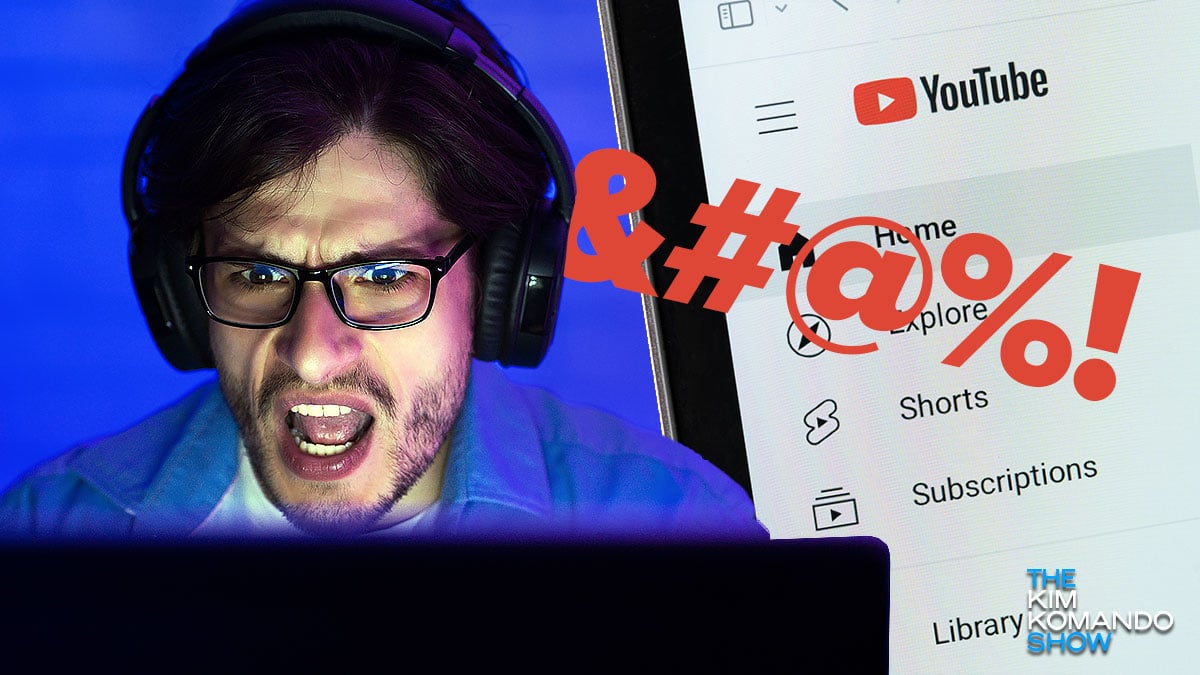YouTube just changed its rules on what curse words are allowed

YouTube is notoriously finicky regarding its policy on what’s allowed on monetized content. One major language-based caveat forbade users from cursing within the first 30 seconds of a monetized video. Until now.
Read on for details on YouTube’s latest cursing policy.
What’s changed about YouTube’s language policy?
This announcement posted recently outlines a new attitude for the platform regarding adult content in “advertiser-friendly” videos. In it, Conor Kavanagh, YouTube Lead for Monetization Policy, describes one major problem plaguing long-time creators: the retroactive demonetization of older videos that don’t abide by newer rules.
The big news? “Moderate” profanity is kosher again. The following terms have been invited back into the fold for those who make a living on YouTube, even within the first 30 seconds:
- B*tch.
- D**che b*g.
- As***le.
- Sh**.
As of November 2022, any of these terms would leave you with no ad revenue in favor of milder content. Stronger curse words aren’t exactly included in this new provision, but content producers can now use them throughout their videos while still generating limited ad revenue.
Many YouTubers aren’t shy about speaking out against some of its stricter policies, and we imagine this change is certainly a sight for sore eyes. While using the worst curse words “repetitively” and excessively may not net you that coveted green icon, there’s still a chance to earn a yellow icon.
Videos with moderate profanity in their titles or thumbnails may also allow you to make money, although these will still be limited to the yellow icon category. Stronger profanity might get you in trouble, however. Just a word of warning for anybody looking to ratchet things up a notch on their channels.
The tides of change: let creative freedom ring
This change is exciting for those creating original content. Even strong profanity in things like the music you use may now be acceptable. Any content demonetized in last November’s update will be reviewed by YouTube’s team again. It’s an optimistic time for those who fell hard the last time the rules were modified.
Keep reading
Wordle is still free, but now it's packed with ad-tracking tech
You have undoubtedly heard of the word guessing game Wordle by now. It became an online sensation in only a few months, with millions of people trying to decipher the colored clues daily.
Initially, the game’s design was simplistic, with a clean user interface and the promise of remaining free. But as popularity grew, the creator sold the game to the New York Times (NYT) for an undisclosed amount. As many feared, the media powerhouse soon started to make changes.
These malware-filled apps promise coupon codes and free shoes

Spend any time on Google Play recently? If so, you might have seen a few apps that promised to send prizes your way if you took a chance and downloaded them. But in the most predictable twist of all time, it turns out these apps were totally full of it.
Would you pay to use Twitter? You might have to

Twitter occupies a strange place in the constellation of social media sites. On one hand, it’s not even the biggest platform you can use — that dubious honor goes to Facebook. On the other, it’s home to some of the most important public figures on the planet, such as industry leaders, celebrities and even the President of the United States himself.
47 apps filling smartphones with malware - see the list

There’s another malware epidemic brewing on the Google Play Store thanks to a batch of deceptive apps that hide their icons and infest phones with advertisements.
Typically, Google removes these kinds of offending apps before more people make the mistake of downloading them. But some of the apps are still live on Google Play for now. Tap or click here to see a recent bad batch of Google Play apps to remove from your phone.
How to silence Facebook when you need a break from social media

Non-essential businesses are closed and in-person gatherings are discouraged. It’s no wonder people are spending more time on social media than ever. But is it doing more harm than good?
Studies by the NIH have found a correlation between social media use and anxiety, which can pose even more of a problem as users spend more time on those platforms than ever before thanks to the COVID-19 pandemic. Tap or click here to see how your social media posts can diagnose your mental state.
